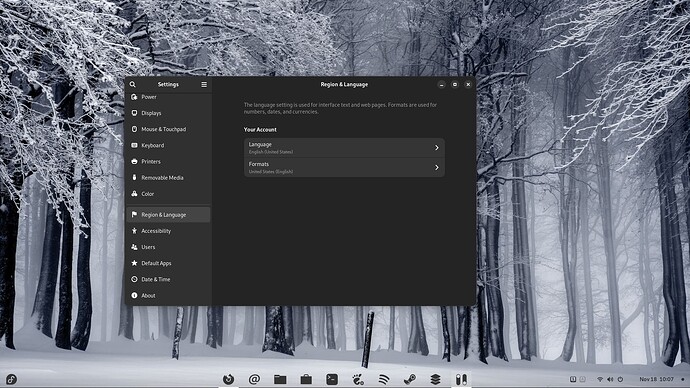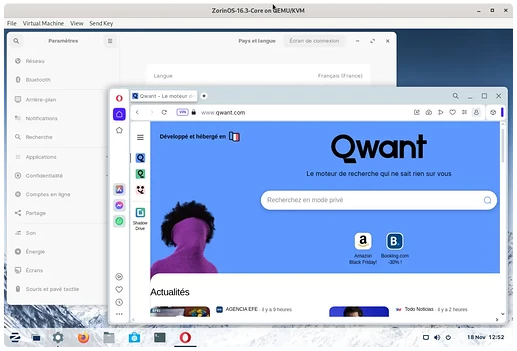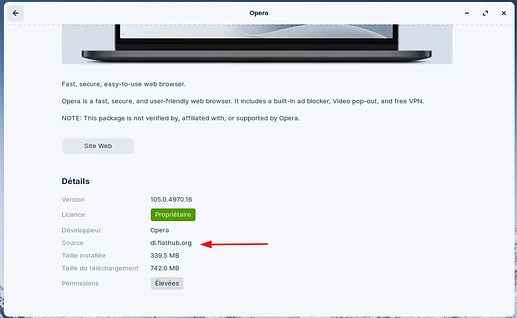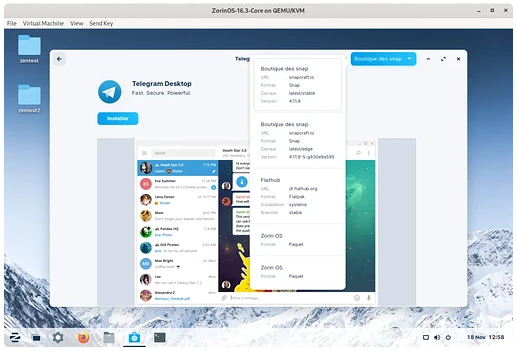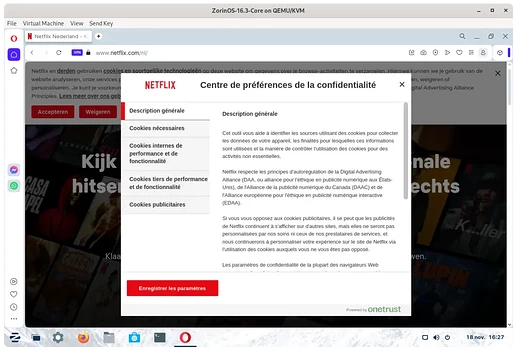Software needs to be developed separately for different operating systems. If Opera doesn't work in one of them, it could be either the underlying operating system or it could be the version developed for it.
In this case, given how other browsers are capable of handling language settings normally, including Chromium-based ones (Opera is based on Chromium), it points to an issue with the Opera binary for Linux.
How did you install Opera, from the Software Store? If so, remove it and download the installer from the Opera website directly.
This will download a file with a .deb extension, which is the native format used by distributions such as Debian, Ubuntu and ZorinOS. Double click on that and just follow the prompt to install it. Hopefully, this should work much better now.
To give a little context, in Linux there are several package formats that are meant to run in a containerized environment, separate from the rest of the system. This is good for many reasons but also has some drawbacks, such as this issue where the settings from the system are not translated to the running program.
So, how can you know if you are installing the native package format or one of these containerized ones? In the Software Store you can scroll down a bit and read the source of the package.
In this case, Flathub is the store for one of said package formats, known as flatpak. In the case of Opera you cannot choose another source, it depends on the package itself. But when there are multiple options available you will see them at the top of the window:
Here you can actually see 3 different package formats: Snap, Flatpak and Package. Snap is similar to Flatpak, and "ZorinOS" is the native .deb package that you can install directly.
If you are confused about this I don't blame you the slightest. Flatpaks and Snaps were develop to solve real problems but they still have many rough edges to work through. For the time being, I would encourage you to try and use the "ZorinOS" format whenever possible. If you don't find it, try to visit the product's website as most of the time there's a download option with the .deb package available.
And if you have doubts, just ask!
![]() )
)